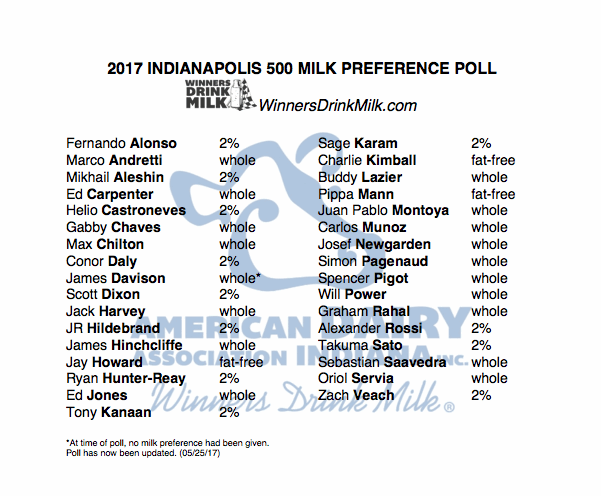Joe Kelsay will present the winning driver with the iconic bottle of milk
By Diego Flammini
Assistant Editor, North American Content
Farms.com
Many race car events end with the top three finishers dousing themselves in champagne.
But the Indianapolis 500 is a little different.
In 1933, race winner Louis Meyer asked for a bottle of cold buttermilk after his victory.
And this Sunday, Joe Kelsay, a dairy farmer from Whiteland, IN, will be in the thick of the action in Victory Circle.
Kelsay will be the race’s head milkman. His job is to present the winning driver with a bottle of milk. Last year, in the race’s 100th running, Kelsay acted as the rookie milkman and handed bottles of milk to the car owner and chief mechanic.
“This is such a cool thing to be a part of and really an honor to be able to represent Indiana dairy farmers”, Kelsay told Hoosier Ag Today on May 25.
Kelsay is the second generation of his family to participate in the Indianapolis 500.
In 2006 and 2007, his father Merrill presented milk to the race winners.
Selected by the American Dairy Association of Indiana (ADAI), Kelsay will be joined by Kim Minich, a dairy producer from La Porte, IN, who was named Indiana Dairy Producer’s Outstanding Young Dairy Producer in 2015.
Minich will serve as the rookie milk person.
“It’s quite the honor,” she told The Times on May 6. “I’m looking forward to it.”
The ADAI polled the drivers participating in the race about their milk preference.
Of the 33 drivers, 12 preferred 2 per cent milk, 18 chose whole milk and three drivers preferred fat-free milk.
